Blackjack is one of the most popular games due to the fact that players’ skills and knowledge really matter and can make a big difference. Just like any other card game, it has a great number of combinations and variations which are the reason why there are so many twists and turns during the course of it. The only way players can gain advantage over the casino and win is if they follow a well-established strategy. One of the most preferred ones is the basic strategy as it gives players the chance to win in the long run.
Situations where players have a total number of an 8 or 9 in their hand are not so hard to tackle as long as they follow a particular strategy. In order to understand the pattern the game follows, players should take their time to observe the different combinations and their possible outcomes. This will allow them to make the best possible choices for their moves and avoid going bust. It is always best to be prepared and follow a plan which has already been proven to work.
When Players’ Hand is 8
The following combinations leave the players with a hand totalling 8 – 2 and 6, 3 and 5, and a pair of 4s, and with the not-so-easy decision how to proceed. In order to give players a better idea of what professional gamblers would have done in such cases, it will be best to take into consideration all of the possible moves and combinations this hand gives players. Prior to making their decisions, players should not only consider their own hand but also the dealer’s up card. This is the reason why in the following examples both things are taken into account.
The ruleset of the particular blackjack variation one is playing is also worth taking into account. This is because the recommended basic strategy plays for this hard total are influenced by factors such as deck number, the playing conditions, and the dealer’s drawing and standing rules. Strategy modifications are required since playing this hard total incorrectly adds to the house edge of the respective game.
Reasonable Moves
Blackjack players who use only basic strategy are at a disadvantage most of the time since the dealer usually stands better chances of winning the round than they do. When this is the case, players should refrain from betting very aggressively to minimise the damage unfavourable spots inflicts on their bankrolls.
The tables sometimes turn in favour of the player whenever they receive a starting total of hard 8 against specific dealer upcards. This, in turn, calls for the adoption of a more aggressive strategic approach, which usually means upping the ante by splitting pairs and doubling down. The purpose of this is to try and capitalise on rare favourable situations. The player can boost earnings by increasing their bets when the dealer is at a disadvantage.
Let’s have a look at the possible options this hand gives players against the dealer’s upcard and how they should act according to the basic strategy principles. If the dealer’s upcard is a 2 through 4 and the players’ hand totals 8, they should hit. The same goes for the situation where the dealer’s upcard is a 7 through ace as hitting is the players’ best choice. The dealer becomes stronger the higher the value of their upcard. Upping one’s wager is not the best course of action under such circumstances.
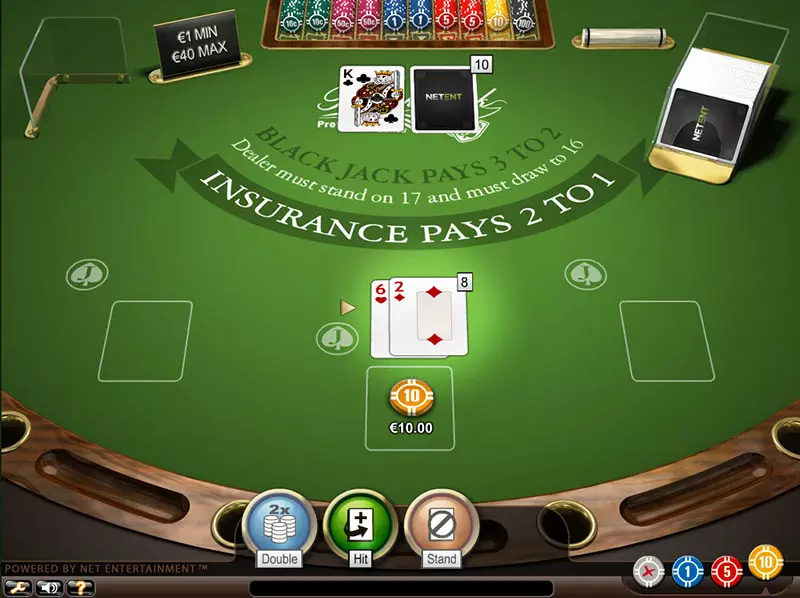
If the case is that the dealer’s upcard is a 5 or 6, players should double down in blackjack variations that utilize a single deck. The reason for this move in that particular case is that players have a good chance of making eighteen and it is also very possible for the dealer to go bust.
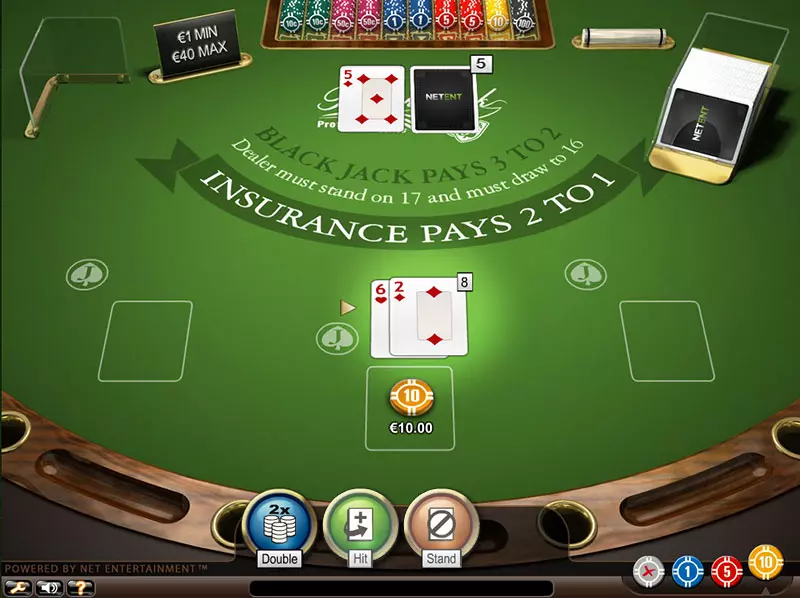
The dealer’s probabilities of exceeding 21 and losing the round when starting with a 5 are 42.89% in S17 single-deck games and 43% in H17 single-deck blackjack. The bust percentages for a dealer holding a 6 are 43.78% when they must hit soft 17 and 42.08% when they stand on all 17s.
With that in mind, some blackjack experts like Donald Schlesinger take into account the exact composition of the player’s hard 8 for more accurate decision-making. The composition-dependent strategy recommends you to hit your 8 against the dealer’s 5 and 6 provided that your total is made up of 2-6 at tables that play under the S17 rule.
If the dealer is required to draw to soft totals of 17, the player should hit their 2-6 only when the upcard is a 6 and double down against the 5. As for double-deck and single-deck blackjack, you should always hit your hard 8 no matter what value the dealer’s upcard has.
Another instance when players can try and capitalise on the dealer’s weakness occurs when their hard 8 contains paired 4s. The correct plays for this pair in single-deck blackjack are influenced by the availability (DAS) or absence (NDAS) of doubling down after a split.
Basic strategy recommends single-deck players to hit their 4s against a dealer with upcards 2, 3, 7, 8, 9, 10, and ace. If you cannot double after you split, you should double on your 4s when the dealer starts with weak cards 5 and 6 and hit against the 4. If DAS applies at your table, the correct move for this pair is to split against the dealer’s 4 through 6 and hit against all other upcards.
The optimal moves for a pair of 4s in blackjack variants that use two to eight decks are different and again depend on the rules that concern doubling after a split. The dealer’s standing rules are irrelevant for this pair in shoe-dealt blackjack. Provided that DAS is possible, players must split against the 5 and the 6 and hit against all other upcards. If NDAS applies, you must always hit your 4s rather than split them.
The motive that lies behind the above mentioned moves, is that it gives players the chance to get a decent amount of money for their bet when the dealer’s up card is the weakest. What is worth mentioning is that this strategical move doesn’t aim at improving the players’ hand but to help them increase their bet for the time when the dealer is in an unfavourable position. This is the reason why players should double down in case the dealer shows 5 or 6.
Doubling Down
Splitting Pairs
Blackjack Basic Strategy
Blackjack Hand 8 or 9
Blackjack Hand 10 or 11
When Players’ Hand is 9
When players have a hard 9, like 5-4, 6-3, or 7-2, this gives them more chances of getting a winning hand. Following the above-mentioned example, once again it will be best to have a look at the cases when the players’ hand totals 9 and how to make the most of these situations.
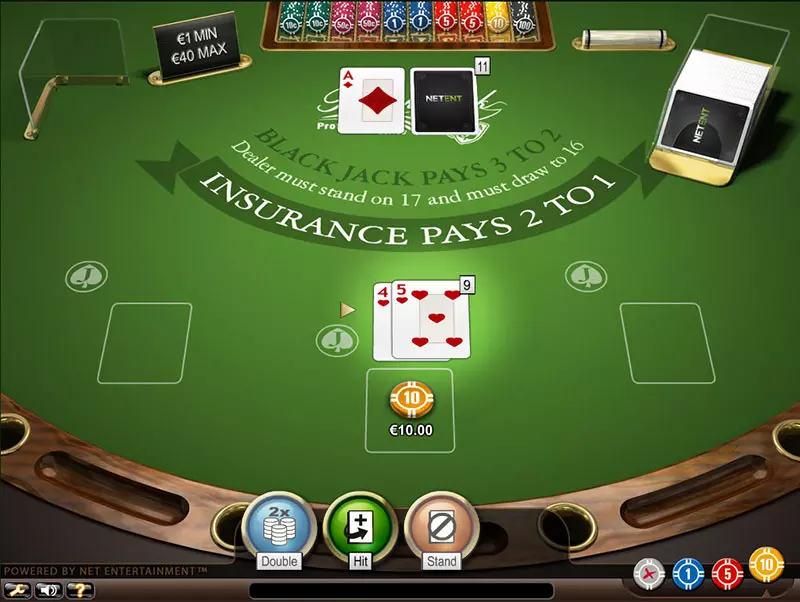
If the dealer’s upcard is a 2, an ace or 7 through 10, players should hit in shoe-dealt blackjack where four to eight decks are used. Whether or not the dealer hits soft 17 is not relevant in this instance. And if the dealer’s upcard is one of those cards – 3, 4, 5 or 6, then players should double down.
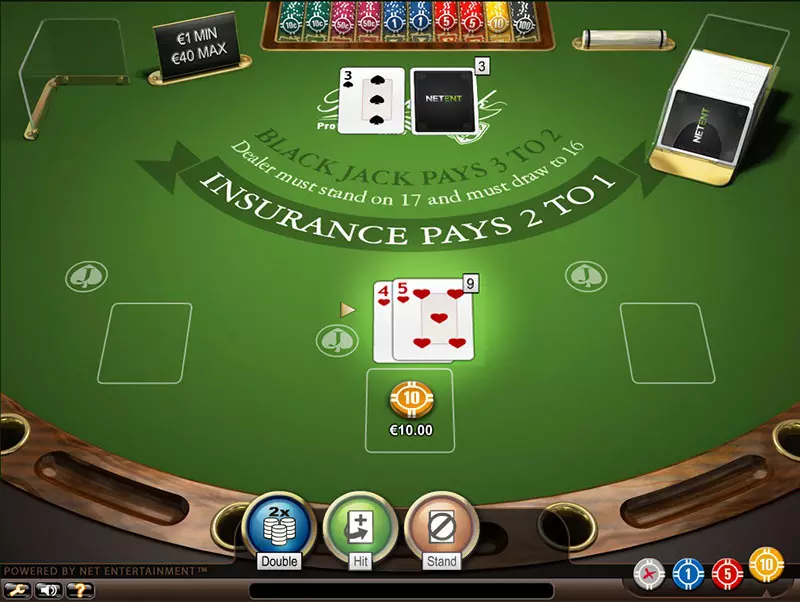
The strategy for single and double-deck games differs slightly since it requires you to double down on your hard 9 when the dealer holds small cards 2 through 6. You hit against all other upcards of the dealer in both S17 and H17 games.
It is worthwhile noting hard 9 should be treated as soft 9/19, which requires a different approach. Soft 9/19 is always a stand in double-deck and shoe-dealt blackjack. In single-deck games, the odds tip slightly in favour of doubling down on 9/19 against the dealer’s 6. Provided that soft doubling is prohibited in your blackjack variation of choice, you should hit on this hand.
Situations To Avoid
Many gamblers double down when the dealer’s upcard is 7 and as a result often lose the hand. Also, the probability of the dealer busting with a 7 is nearly twice as lower than that for a 5 or a 6. Even though the dealer is not particularly strong with a 7, players should refrain from making such a move.
The reason for this is that the chance they will get a card from 2 through 7 is quite high which leaves them in the unfavourable position to get 16 as a total maximum value for their hand. It is just not worth the risk for players whose top priority is to win in the long term as their chance of getting a good hand is significantly decreased.
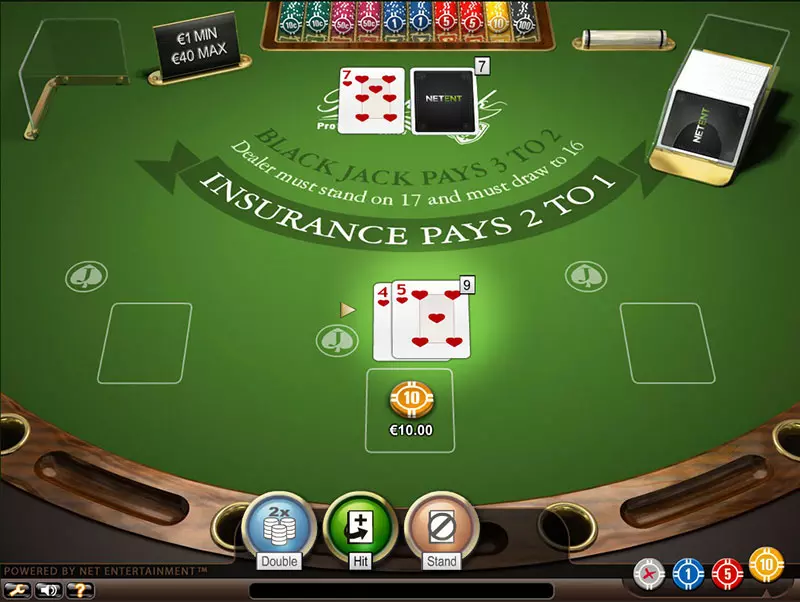
The reason why players should double down when they have a 9 hand, is that if they are dealt with a face card or a 10, its total will be 19 which is a favourable position to be in. If gamblers are lucky enough to get an ace, this will leave them with a twenty hand, which is even better. In general, blackjack experts recommend players to make the most of every situation when the dealer is in a disadvantageous position and has a weak card.
Considerations
Before playing, if blackjack players would like to make the best possible move when they have an 8 or a 9 hand, they need to take into account the following things – whether the dealer hits or stands on soft 17 and whether soft doubles are allowed. Having an 8 or a 9 hand doesn’t give players much choice and it is really important to know when to hit and when to double down.
Their decision will determine the course of their game and will make the difference between losing and winning that particular hand so it must be considered carefully. Even though losing one hand doesn’t really matter as what is most important is to win in the long run, players need to remember that it is every hand’s outcome that forms the bigger picture.
| Hand 8 and Hand 9 Basic Strategy Chart | ||||||||||
|---|---|---|---|---|---|---|---|---|---|---|
| Players’ Hand | Dealer’s Up Card | |||||||||
| 2 | 3 | 4 | 5 | 6 | 7 | 8 | 9 | 10 | Ace | |
| 8 | H | H | H | D | D | H | H | H | H | H |
| 9 | H | D | D | D | D | H | H | H | H | H |
Conclusion
There are a great number of different card combinations and the decisions players can make are just as many. Nowadays, many experts offer their developed strategies and suggestions on how to beat the game and gain an advantage over the casino. Blackjack is a casino game and as such, involves money which is the reason why every player should strive for excellence at the table.
It can only be achieved through a lot of practice, dedication, and knowledge. Knowing what options a particular hand gives them, gamblers can make the best choice and lose the least possible amount of money each time the casino has an advantage.